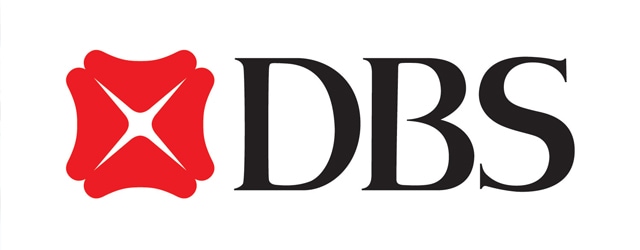Widespread supply chain disruption during the pandemic put a spotlight on outdated trade finance processes. Now, corporates focused on digital transformation are redefining the financial supply chain as a resilient trade ecosystem, according to Sriram Muthukrishnan, Group Head of Trade Product Management, at DBS.

Many paper-based processes and physical touch points will soon become a thing of the past for corporates.
Amid the chaos the pandemic created for supply chains, with delayed deliveries and payments, digital solutions became a lifeline for businesses globally. “Companies see the imperative in streamlining complex trade finance processes, and a focused digital approach is essential to creating resilient trade ecosystems of the future,” said Muthukrishnan.
Adopting a Digital First mindset to Trade Finance
DBS is at the forefront of digital transformation, with a ready comprehensive suite of ‘contact free’ tools for customers to make a seamless transition towards digital banking, to ensure business continuity and be more agile in their supply chain management.
Key innovations to support customers’ digitalisation include an end-to-end digital onboarding solution which allows suppliers of large corporates to self-onboard to supply chain finance programmes. Another case in point is the bank’s Digital Accounts Receivable Purchase solution where digital facility application through a self-service portal enables faster, paperless facility activation for SMEs to meet their liquidity needs.

“Companies see the imperative in streamlining complex trade finance processes, and a focused digital approach is essential to creating resilient trade ecosystems of the future.”
Sriram Muthukrishnan, Group Head of Trade Product Management.
Digitalising goes beyond remote onboarding. To mitigate frictions in the physical exchange of trade documents, DBS has launched a key capability – DigiDocs where customers can leverage the bank’s corporate internet banking platform IDEAL to conduct 24/7 digital document submissions for convenient transactional drawdowns online.
To further accelerate trade financing to SMEs, DBS has also rolled out Alternative Lending for Trade, a digital tool that takes a data-driven approach by leveraging real-time supply chain data and predictive analysis to finance merchants, buyers or suppliers on digital aggregator platforms.
When discussing traditional manual processes, letters of credit (LC) immediately comes to mind as a costly, time-consuming paper heavy process both for corporates and banks alike. To alleviate this pertinent problem, DBS partnered with blockchain provider Contour, becoming the first Singapore-based bank to onboard Contour’s Beta Network. Through this partnership, DBS completed the first fully digital end-to-end secured LC transaction on the platform in 2020 and now offers this digital LC solution to customers across Australia, China, Hong Kong and Singapore.
Unified trade finance community
Collaboration is crucial to digital transformation in the trade finance space, given the large network of players involved in a single transaction. “For corporates, to fully reap the benefits of digitalisation and move away from digital silos, interoperable digital trade solutions are of paramount importance to connect and interact effectively” said Muthukrishnan.
To enable interoperability, government agencies are key to promote collaboration by providing or advocating for common digital standards. This will help increase confidence in digital processes when there is a shared understanding of what each action or message means across the trade network. Recognising that supply chain participants operate at different levels of digital maturity, interoperability will allow for the secure exchange of data across disparate networks in any trade journey.
In Singapore, DBS is a core member of the Emerging Stronger Taskforce Supply Chain Digitalisation Alliance for Action, where public and private players work together to address pertinent issues to future-proof the economy and reduce inefficiencies in physical, data and financial flows.
The bank is also working with SWIFT and IMDA to facilitate digital transmission of trade documents, including title transfers of electronic bills of lading via TradeTrust, an open source tool leveraging UNCITRAL Model Law on Electronic Transferable Records that holds potential to bridge the gaps that private, closed-loop platforms may face.
Going green, the future of supply chains
Sustainability is a critical component of trade. It is not only about the environment and responsible practices within a specific organisation, but also about ensuring long-term business viability, spanning across the entire value chain. This is especially high on many MNCs’ agenda, with consumers and investors placing companies under greater scrutiny for environmental, social and governance practices. Raised regulatory and compliance standards in many markets and sectors add to the exigency.
Given the complexity of multi-tiered supply chains across different geographies, lack of supply chain transparency and control can be a source of business disruption and non-compliance to sustainability policies resulting in financial and reputational losses.
However, there has been a marked improvement with the advent of digital tools, such as internet of things to collect data, 5G networks to transmit this more efficiently and cheaply, machine learning to make real-time decisions and blockchain to enable supply chain traceability and visibility across the supply chain.
By leveraging digital technologies to monitor the supply chain network more closely, it can provide corporates with critical early warning signals to potential disruptions. It also helps businesses manage exposure to risks and verify that products are procured sustainably.
In this vein, DBS delivered a market-first sustainable cotton procurement supply chain financing program with Inditex, one of the world’s largest fashion retailers. Through this program, the bank avails financing to the local network of Farmer Producer Organisations to procure organic cotton from farmers. This helps the farmers gain greater visibility into their cashflow, enabling them to better budget business needs and grow their sustainable farming operations.
Trade finance is central to moving towards a more sustainable world. “Stronger industry standards and clear definitions of sustainable outcomes will accelerate implementation of sustainable supply chains,” said Muthukrishnan, “and incorporating sustainability metrics in supply chain programmes is a key enabler to effecting change and influencing smaller players in exchange for tangible access to financing or cheaper working capital.”
With corporates and banks working hand in hand to harness digital technologies to build resilience, efficiency and sustainability into the trade finance ecosystem, the new digital future may not be so distant after all.
Sponsored By:
